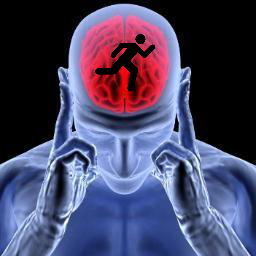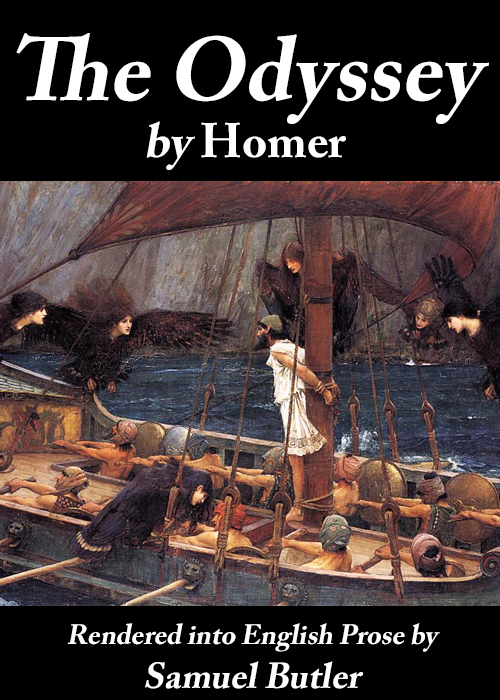THE LAST LINK
Catagory:Reading
Author:Agatha Christie
Posted Date:01/23/2025
Posted By:utopia online
Poirot’s abrupt departure had intrigued us all greatly. Sunday morning wore away, and still he did not reappear. But about three o’clock a ferocious and prolonged hooting outside drove us to the window, to see Poirot alighting from a car, accompanied by Japp and Summerhaye. The little man was transformed. He radiated an absurd complacency. He bowed with exaggerated respect to Mary Cavendish.
“Madame, I have your permission to hold a little réunion in the salon? It is necessary for everyone to attend.”
Mary smiled sadly.
“You know, Monsieur Poirot, that you have carte blanche in every way.”
“You are too amiable, madame.”
Still beaming, Poirot marshalled us all into the drawing-room, bringing forward chairs as he did so.
“Miss Howard—here. Mademoiselle Cynthia. Monsieur Lawrence. The good Dorcas. And Annie. Bien! We must delay our proceedings a few minutes until Mr. Inglethorp arrives. I have sent him a note.”
Miss Howard rose immediately from her seat.
“If that man comes into the house, I leave it!”
“No, no!” Poirot went up to her and pleaded in a low voice.
Finally Miss Howard consented to return to her chair. A few minutes later Alfred Inglethorp entered the room.
The company once assembled, Poirot rose from his seat with the air of a popular lecturer, and bowed politely to his audience.
“Messieurs, mesdames, as you all know, I was called in by Monsieur John Cavendish to investigate this case. I at once examined the bedroom of the deceased which, by the advice of the doctors, had been kept locked, and was consequently exactly as it had been when the tragedy occurred. I found: first, a fragment of green material; second, a stain on the carpet near the window, still damp; thirdly, an empty box of bromide powders.
“To take the fragment of green material first, I found it caught in the bolt of the communicating door between that room and the adjoining one occupied by Mademoiselle Cynthia. I handed the fragment over to the police who did not consider it of much importance. Nor did they recognize it for what it was—a piece torn from a green land armlet.”
There was a little stir of excitement.
“Now there was only one person at Styles who worked on the land—Mrs. Cavendish. Therefore it must have been Mrs. Cavendish who entered the deceased’s room through the door communicating with Mademoiselle Cynthia’s room.”
“But that door was bolted on the inside!” I cried.
“When I examined the room, yes. But in the first place we have only her word for it, since it was she who tried that particular door and reported it fastened. In the ensuing confusion she would have had ample opportunity to shoot the bolt across. I took an early opportunity of verifying my conjectures. To begin with, the fragment corresponds exactly with a tear in Mrs. Cavendish’s armlet. Also, at the inquest, Mrs. Cavendish declared that she had heard, from her own room, the fall of the table by the bed. I took an early opportunity of testing that statement by stationing my friend Monsieur Hastings in the left wing of the building, just outside Mrs. Cavendish’s door. I myself, in company with the police, went to the deceased’s room, and whilst there I, apparently accidentally, knocked over the table in question, but found that, as I had expected, Monsieur Hastings had heard no sound at all. This confirmed my belief that Mrs. Cavendish was not speaking the truth when she declared that she had been dressing in her room at the time of the tragedy. In fact, I was convinced that, far from having been in her own room, Mrs. Cavendish was actually in the deceased’s room when the alarm was given.”
I shot a quick glance at Mary. She was very pale, but smiling.
“I proceeded to reason on that assumption. Mrs. Cavendish is in her mother-in-law’s room. We will say that she is seeking for something and has not yet found it. Suddenly Mrs. Inglethorp awakens and is seized with an alarming paroxysm. She flings out her arm, overturning the bed table, and then pulls desperately at the bell. Mrs. Cavendish, startled, drops her candle, scattering the grease on the carpet. She picks it up, and retreats quickly to Mademoiselle Cynthia’s room, closing the door behind her. She hurries out into the passage, for the servants must not find her where she is. But it is too late! Already footsteps are echoing along the gallery which connects the two wings. What can she do? Quick as thought, she hurries back to the young girl’s room, and starts shaking her awake. The hastily aroused household come trooping down the passage. They are all busily battering at Mrs. Inglethorp’s door. It occurs to nobody that Mrs. Cavendish has not arrived with the rest, but—and this is significant—I can find no one who saw her come from the other wing.” He looked at Mary Cavendish. “Am I right, madame?”
She bowed her head.
“Quite right, monsieur. You understand that, if I had thought I would do my husband any good by revealing these facts, I would have done so. But it did not seem to me to bear upon the question of his guilt or innocence.”
“In a sense, that is correct, madame. But it cleared my mind of many misconceptions, and left me free to see other facts in their true significance.”
“The will!” cried Lawrence. “Then it was you, Mary, who destroyed the will?”
She shook her head, and Poirot shook his also.
“No,” he said quietly. “There is only one person who could possibly have destroyed that will—Mrs. Inglethorp herself!”
“Impossible!” I exclaimed. “She had only made it out that very afternoon!”
“Nevertheless, mon ami, it was Mrs. Inglethorp. Because, in no other way can you account for the fact that, on one of the hottest days of the year, Mrs. Inglethorp ordered a fire to be lighted in her room.”
I gave a gasp. What idiots we had been never to think of that fire as being incongruous! Poirot was continuing:
“The temperature on that day, messieurs, was 80 degrees in the shade. Yet Mrs. Inglethorp ordered a fire! Why? Because she wished to destroy something, and could think of no other way. You will remember that, in consequence of the War economics practiced at Styles, no waste paper was thrown away. There was therefore no means of destroying a thick document such as a will. The moment I heard of a fire being lighted in Mrs. Inglethorp’s room, I leaped to the conclusion that it was to destroy some important document—possibly a will. So the discovery of the charred fragment in the grate was no surprise to me. I did not, of course, know at the time that the will in question had only been made this afternoon, and I will admit that, when I learnt that fact, I fell into a grievous error. I came to the conclusion that Mrs. Inglethorp’s determination to destroy her will arose as a direct consequence of the quarrel she had that afternoon, and that therefore the quarrel took place after, and not before the making of the will.
“Here, as we know, I was wrong, and I was forced to abandon that idea. I faced the problem from a new standpoint. Now, at four o’clock, Dorcas overheard her mistress saying angrily: ‘You need not think that any fear of publicity, or scandal between husband and wife will deter me.” I conjectured, and conjectured rightly, that these words were addressed, not to her husband, but to Mr. John Cavendish. At five o’clock, an hour later, she uses almost the same words, but the standpoint is different. She admits to Dorcas, ‘I don’t know what to do; scandal between husband and wife is a dreadful thing.’ At four o’clock she has been angry, but completely mistress of herself. At five o’clock she is in violent distress, and speaks of having had a great shock.
“Looking at the matter psychologically, I drew one deduction which I was convinced was correct. The second ‘scandal’ she spoke of was not the same as the first—and it concerned herself!
“Let us reconstruct. At four o’clock, Mrs. Inglethorp quarrels with her son, and threatens to denounce him to his wife—who, by the way, overheard the greater part of the conversation. At four-thirty, Mrs. Inglethorp, in consequence of a conversation on the validity of wills, makes a will in favour of her husband, which the two gardeners witness. At five o’clock, Dorcas finds her mistress in a state of considerable agitation, with a slip of paper—‘a letter,’ Dorcas thinks—in her hand, and it is then that she orders the fire in her room to be lighted. Presumably, then, between four-thirty and five o’clock, something has occurred to occasion a complete revolution of feeling, since she is now as anxious to destroy the will, as she was before to make it. What was that something?
“As far as we know, she was quite alone during that half-hour. Nobody entered or left that boudoir. What then occasioned this sudden change of sentiment?
“One can only guess, but I believe my guess to be correct. Mrs. Inglethorp had no stamps in her desk. We know this, because later she asked Dorcas to bring her some. Now in the opposite corner of the room stood her husband’s desk—locked. She was anxious to find some stamps, and, according to my theory, she tried her own keys in the desk. That one of them fitted I know. She therefore opened the desk, and in searching for the stamps she came across something else—that slip of paper which Dorcas saw in her hand, and which assuredly was never meant for Mrs. Inglethorp’s eyes. On the other hand, Mrs. Cavendish believed that the slip of paper to which her mother-in-law clung so tenaciously was a written proof of her own husband’s infidelity. She demanded it from Mrs. Inglethorp who assured her, quite truly, that it had nothing to do with that matter. Mrs. Cavendish did not believe her. She thought that Mrs. Inglethorp was shielding her stepson. Now Mrs. Cavendish is a very resolute woman, and, behind her mask of reserve, she was madly jealous of her husband. She determined to get hold of that paper at all costs, and in this resolution chance came to her aid. She happened to pick up the key of Mrs. Inglethorp’s despatch-case, which had been lost that morning. She knew that her mother-in-law invariably kept all important papers in this particular case.
“Mrs. Cavendish, therefore, made her plans as only a woman driven desperate through jealousy could have done. Some time in the evening she unbolted the door leading into Mademoiselle Cynthia’s room. Possibly she applied oil to the hinges, for I found that it opened quite noiselessly when I tried it. She put off her project until the early hours of the morning as being safer, since the servants were accustomed to hearing her move about her room at that time. She dressed completely in her land kit, and made her way quietly through Mademoiselle Cynthia’s room into that of Mrs. Inglethorp.”
He paused a moment, and Cynthia interrupted:
“But I should have woken up if anyone had come through my room?”
“Not if you were drugged, mademoiselle.”
“Drugged?”
“Mais, oui!”
“You remember”—he addressed us collectively again—“that through all the tumult and noise next door Mademoiselle Cynthia slept. That admitted of two possibilities. Either her sleep was feigned—which I did not believe—or her unconsciousness was induced by artificial means.
“With this latter idea in my mind, I examined all the coffee-cups most carefully, remembering that it was Mrs. Cavendish who had brought Mademoiselle Cynthia her coffee the night before. I took a sample from each cup, and had them analysed—with no result. I had counted the cups carefully, in the event of one having been removed. Six persons had taken coffee, and six cups were duly found. I had to confess myself mistaken.
“Then I discovered that I had been guilty of a very grave oversight. Coffee had been brought in for seven persons, not six, for Dr. Bauerstein had been there that evening. This changed the face of the whole affair, for there was now one cup missing. The servants noticed nothing, since Annie, the housemaid, who took in the coffee, brought in seven cups, not knowing that Mr. Inglethorp never drank it, whereas Dorcas, who cleared them away the following morning, found six as usual—or strictly speaking she found five, the sixth being the one found broken in Mrs. Inglethorp’s room.
“I was confident that the missing cup was that of Mademoiselle Cynthia. I had an additional reason for that belief in the fact that all the cups found contained sugar, which Mademoiselle Cynthia never took in her coffee. My attention was attracted by the story of Annie about some ‘salt’ on the tray of cocoa which she took every night to Mrs. Inglethorp’s room. I accordingly secured a sample of that cocoa, and sent it to be analysed.”
“But that had already been done by Dr. Bauerstein,” said Lawrence quickly.
“Not exactly. The analyst was asked by him to report whether strychnine was, or was not, present. He did not have it tested, as I did, for a narcotic.”
“For a narcotic?”
“Yes. Here is the analyst’s report. Mrs. Cavendish administered a safe, but effectual, narcotic to both Mrs. Inglethorp and Mademoiselle Cynthia. And it is possible that she had a mauvais quart d’heure in consequence! Imagine her feelings when her mother-in-law is suddenly taken ill and dies, and immediately after she hears the word ‘Poison’! She has believed that the sleeping draught she administered was perfectly harmless, but there is no doubt that for one terrible moment she must have feared that Mrs. Inglethorp’s death lay at her door. She is seized with panic, and under its influence she hurries downstairs, and quickly drops the coffee-cup and saucer used by Mademoiselle Cynthia into a large brass vase, where it is discovered later by Monsieur Lawrence. The remains of the cocoa she dare not touch. Too many eyes are upon her. Guess at her relief when strychnine is mentioned, and she discovers that after all the tragedy is not her doing.
“We are now able to account for the symptoms of strychnine poisoning being so long in making their appearance. A narcotic taken with strychnine will delay the action of the poison for some hours.”
Poirot paused. Mary looked up at him, the colour slowly rising in her face.
“All you have said is quite true, Monsieur Poirot. It was the most awful hour of my life. I shall never forget it. But you are wonderful. I understand now——”
“What I meant when I told you that you could safely confess to Papa Poirot, eh? But you would not trust me.”
“I see everything now,” said Lawrence. “The drugged cocoa, taken on top of the poisoned coffee, amply accounts for the delay.”
“Exactly. But was the coffee poisoned, or was it not? We come to a little difficulty here, since Mrs. Inglethorp never drank it.”
“What?” The cry of surprise was universal.
“No. You will remember my speaking of a stain on the carpet in Mrs. Inglethorp’s room? There were some peculiar points about that stain. It was still damp, it exhaled a strong odour of coffee, and imbedded in the nap of the carpet I found some little splinters of china. What had happened was plain to me, for not two minutes before I had placed my little case on the table near the window, and the table, tilting up, had deposited it upon the floor on precisely the identical spot. In exactly the same way, Mrs. Inglethorp had laid down her cup of coffee on reaching her room the night before, and the treacherous table had played her the same trick.
“What happened next is mere guess work on my part, but I should say that Mrs. Inglethorp picked up the broken cup and placed it on the table by the bed. Feeling in need of a stimulant of some kind, she heated up her cocoa, and drank it off then and there. Now we are faced with a new problem. We know the cocoa contained no strychnine. The coffee was never drunk. Yet the strychnine must have been administered between seven and nine o’clock that evening. What third medium was there—a medium so suitable for disguising the taste of strychnine that it is extraordinary no one has thought of it?” Poirot looked round the room, and then answered himself impressively. “Her medicine!”
“Do you mean that the murderer introduced the strychnine into her tonic?” I cried.
“There was no need to introduce it. It was already there—in the mixture. The strychnine that killed Mrs. Inglethorp was the identical strychnine prescribed by Dr. Wilkins. To make that clear to you, I will read you an extract from a book on dispensing which I found in the Dispensary of the Red Cross Hospital at Tadminster:
“‘The following prescription has become famous in text books:
Strychninae Sulph. . . . . . 1 gr.
Potass Bromide . . . . . . . 3vi
Aqua ad. . . . . . . . . . . . . 3viii
Fiat Mistura
This solution deposits in a few hours the greater part of the strychnine salt as an insoluble bromide in transparent crystals. A lady in England lost her life by taking a similar mixture: the precipitated strychnine collected at the bottom, and in taking the last dose she swallowed nearly all of it!
“Now there was, of course, no bromide in Dr. Wilkins’ prescription, but you will remember that I mentioned an empty box of bromide powders. One or two of those powders introduced into the full bottle of medicine would effectually precipitate the strychnine, as the book describes, and cause it to be taken in the last dose. You will learn later that the person who usually poured out Mrs. Inglethorp’s medicine was always extremely careful not to shake the bottle, but to leave the sediment at the bottom of it undisturbed.
“Throughout the case, there have been evidences that the tragedy was intended to take place on Monday evening. On that day, Mrs. Inglethorp’s bell wire was neatly cut, and on Monday evening Mademoiselle Cynthia was spending the night with friends, so that Mrs. Inglethorp would have been quite alone in the right wing, completely shut off from help of any kind, and would have died, in all probability, before medical aid could have been summoned. But in her hurry to be in time for the village entertainment Mrs. Inglethorp forgot to take her medicine, and the next day she lunched away from home, so that the last—and fatal—dose was actually taken twenty-four hours later than had been anticipated by the murderer; and it is owing to that delay that the final proof—the last link of the chain—is now in my hands.”
Amid breathless excitement, he held out three thin strips of paper.
“A letter in the murderer’s own hand-writing, mes amis! Had it been a little clearer in its terms, it is possible that Mrs. Inglethorp, warned in time, would have escaped. As it was, she realized her danger, but not the manner of it.”
In the deathly silence, Poirot pieced together the slips of paper and, clearing his throat, read:
Dearest Evelyn:
‘You will be anxious at hearing nothing. It is all right—only it will be to-night instead of last night. You understand. There’s a good time coming once the old woman is dead and out of the way. No one can possibly bring home the crime to me. That idea of yours about the bromides was a stroke of genius! But we must be very circumspect. A false step——’
“Here, my friends, the letter breaks off. Doubtless the writer was interrupted; but there can be no question as to his identity. We all know this hand-writing and——”
A howl that was almost a scream broke the silence.
“You devil! How did you get it?”
A chair was overturned. Poirot skipped nimbly aside. A quick movement on his part, and his assailant fell with a crash.
“Messieurs, mesdames,” said Poirot, with a flourish, “let me introduce you to the murderer, Mr. Alfred Inglethorp!”


.jpg)














 👁 :100
👁 :100
0.jpg) 👁 :1
👁 :1
0.jpg) 👁 :
👁 :
0.jpeg) 👁 :111
👁 :111
 👁 :75
👁 :75
 👁 :83
👁 :83
 👁 :364
👁 :364
 👁 :222
👁 :222